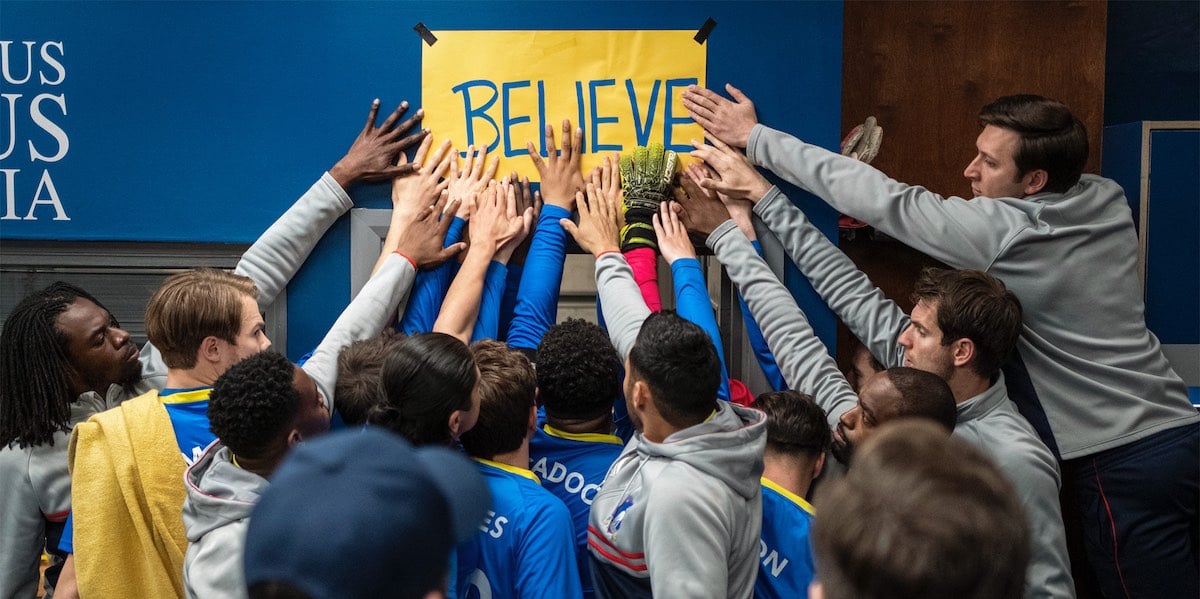Industry insights: Streaming services have yet more success at the Emmys while Sky ditches the satellite and pivots to OTT.
 Streaming (almost) sweeps the Emmys once more
Streaming (almost) sweeps the Emmys once more
[Variety, The Hollywood Reporter]
Following last year’s success where streaming companies swept the Emmys and generated a huge amount of articles at the same time, the fact that they pretty much did it again was much less remarked on this year.
Perhaps that’s because some of what they achieved was a repeat. Apple TV+’s Ted Lasso won best comedy series for the second year in a row, and Jason Sudeikis once again took the top honor for actor in a comedy. Meanwhile, HBO Max’s The White Lotus took top limited series and HBO’s Succession grabbed the highest award of the night for outstanding drama series.
In fact, HBO and HBO Max were the big winners of the night, with 38 awards in total, comfortably outstripping Netflix’s 26. NBC was once more the best performing of the traditional networks with six awards.
Here’s how last year’s Top 5 did this year in terms of total awards (including the often unfairly overlooked craft ones) with a comparison to the 2021 figures.
HBO/HBO Max - 38 (+19)
Netflix - 26 (-18)
Disney+ - 9 (-5)
Apple - 9 (-1)
NBC - 6 (-1)
Hulu won 10, and big-spending Amazon picked up seven and will fervently hope to do better next year and see a return on its many investments. CBS, which hosted the show last year and won nothing, this year won five awards.
What does all this tell us? First that the creative engine that is HBO should never be discounted, and second that traditional broadcasters are really on the back foot in the US compared to the streamers. In a trenchant opinion piece titled Why Do Broadcast Networks Want to Air Their Own Funeral?, The Hollywood Reporter pointed out that the networks have never had as poor a showing when it comes to the Emmy nominations as this year. The Big Four collectively garnered 86 nominations, which is less than the individual totals of HBO/HBO Max (140) and Netflix (105).
The optics of that are not good, but measured against it has to be the fact that the Emmys are also not entirely free of idiosyncrasy. For example, AMC’s Better Call Saul is nearing the end of its Emmys eligibility and, despite being one of the consistently best reviewed shows on TV, has never won a single award.
The streaming platforms might dominate the awards now, but when it comes round to celebrations and commiserations it’s perhaps worth remembering that the judgement of the Academy members is very subjective and, perhaps, not always right.
Sky moves further away from satellite
The announcement that the UK and Ireland’s Sky is launching a new dedicated streaming device, Sky Stream, next month, is not surprising but it is symbolic. Sky has a corporate history stretching back to 1989 and is perhaps one of the broadcasters most associated with the 1990s expansion of satellite TV services.
The fact that it is now offering its service as a standalone OTT proposition via a cheap, plug and play device only helps to underscore the industry move towards streaming as the primary means of future video distribution. And its launch materials also highlight the importance of another key technology to the future of television: super aggregation.
Apart from Sky itself, the second name most mentioned in its launch PR is Netflix. The broadcaster made headlines a few years ago when it became one of the first to aggregate content from what was then considered a rival SVOD service. Now it is making sure that customers for the new puck know they can use it to access Netflix too. The sense is that anything else just won’t fly in the current market.
It doesn’t stop there either, with a long list of services to be included in the new service also including Apple TV+, Amazon Prime, Disney+, BBC iPlayer, ITV Hub, All4, YouTube, Discovery+, Peacock, Fiit and more. Content is provided in HD on a 31-day rolling plan with options to buy Ultra HD and Dolby Atmos bolt-ons. Sky’s UI is extremely well regarded and does a very efficient job of aggregating content and implementing features such as universal search, Voice, personalised playlists, and more.
At a unit price of free and a monthly cost of £29 it manages to pull off the neat trick of untethering itself from unattractive installation requirements, while lowering the price of access to its services and simultaneously raising the bar for everyone else to have to jump over. It’s possibly not going to shake up the industry as much as Sky did when it started signing exclusive rights to take a succession of sporting properties behind a paywall, but it’s a definite indicator of what a successful TV service needs to offer in 2022 and beyond.
Starlink slows its service as more people join
Sticking with satellites, while satellite internet from Low Earth Orbit satellites is regularly touted as the panacea to solving ultra-high-speed broadband roll out issues, as more people join the services it seems they slow down significantly. In other words, they are vulnerable to the same laws of internet supply and demand, not to mention the frustration of contended networks, that the rest of us are.
Starlink’s median download speeds in the US fell from 90.6Mbps to 62.5Mbps between the first and second quarters of 2022 according to recent speed tests. Starlink's median upload speeds also dropped from 9.3Mbps to 7.2Mbps in the same timeframe. Latency crept up too, from 43 ms to 48 ms.
These are getting extremely close to the minimum levels that Starlink advertises (latency has actually crept beyond its 20 to 40ms advertised) and the picture is repeated around the world. Download speeds for Starlink fell across Canada, France, Germany, New Zealand, the UK, and the US, dropping anywhere between 9% and 54%.
The reason is simple, more people have signed up for the service. Close to 500,000 people are using Starlink in 32 countries according to operator SpaceX, pretty much everyone who signed up for its initial rollout. The answer, at least according to Elon Musk, is simple too: more satellites. Currently 3000 satellites are in orbit with the company having permission to launch up to 12,000 and currently agitating for many, many more.
“Only limitation is high density of users in urban areas,” Musk tweeted about Starlink in May 2021. "Most likely, all of the initial 500k will receive service. More of a challenge when we get into the several million-user range.”
With the FCC knocking back close to a billion dollars of broadband funding for the company because Starlink doesn’t provide the required speeds of 100Mbps download and 20Mbps upload, and ambitious plans for 5 million customers in the US alone, the race is therefore on to grow the network before it slows down even more.
Main pic: Ted Lasso © Apple TV

